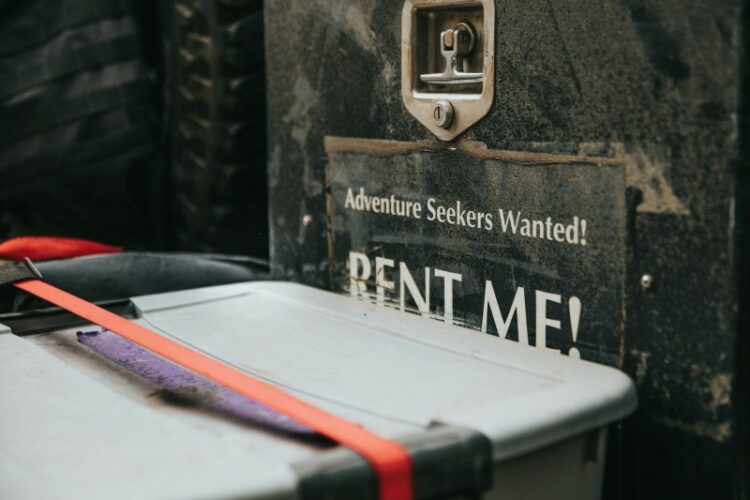Finding affordable housing can be a daunting task, especially in today’s competitive rental market. However, with careful planning, thorough research, and effective negotiation strategies, you can secure a place that fits your budget and meets your needs. Here are some valuable tips to help you find affordable housing and negotiate rent effectively.
1. Understand Your Budget
Calculate Your Affordability
Before you start your search, it’s crucial to know how much rent you can afford. A common guideline is to spend no more than 30% of your monthly income on rent. Consider all your monthly expenses, including utilities, groceries, transportation, and savings, to determine a realistic rental budget.
Factor in Additional Costs
Don’t forget to include additional costs such as security deposits, application fees, moving expenses, and potential utilities. Some rentals include utilities in the rent, while others don’t, so clarify this before signing any lease.
2. Research the Market
Explore Different Neighborhoods
Research various neighborhoods to find areas that offer affordable rent while meeting your lifestyle needs. Consider factors such as proximity to work, public transportation, schools, and amenities. Sometimes, living slightly farther from the city center can offer significant savings.
Monitor Rental Listings
Keep an eye on rental listings through websites like Zillow, Apartments.com, Craigslist, and local real estate platforms. Set up alerts for new listings in your desired areas to stay updated on available properties.
Check for Rental Trends
Understanding rental trends in your area can give you an edge. Look for patterns in rent prices and availability, and identify the best times of year to find affordable rentals. In many places, rents tend to be lower in winter due to lower demand.
3. Be Prepared
Gather Necessary Documents
Landlords often require various documents during the application process, such as proof of income, credit reports, references, and identification. Having these documents ready can expedite the process and make a positive impression.
Know What You Want
Clearly define your must-haves and deal-breakers in a rental property. This can include the number of bedrooms, pet policies, amenities, and lease terms. Knowing what you want will help you focus your search and avoid wasting time on unsuitable properties.
4. View Properties with a Critical Eye
Inspect the Property
When viewing potential rentals, carefully inspect the property for any signs of damage, pest issues, or safety concerns. Take note of the condition of appliances, plumbing, and electrical systems. Don’t hesitate to ask the landlord about any concerns you have.
Evaluate the Lease Terms
Read the lease agreement thoroughly before signing. Ensure you understand the terms, including rent payment procedures, maintenance responsibilities, lease duration, and renewal policies. Look out for any clauses that may be unfavorable or ambiguous.
5. Negotiate Rent and Terms
Do Your Homework
Research comparable rental properties in the area to understand the going rates. This knowledge can be a powerful bargaining tool during negotiations. If you find that the rent is above the market rate, you can use this information to justify your request for a lower price.
Highlight Your Strengths as a Tenant
Emphasize your strengths as a tenant, such as a stable income, good credit score, and positive references from previous landlords. Landlords may be willing to negotiate if they believe you will be a reliable and responsible tenant.
Ask for Discounts and Incentives
Don’t be afraid to ask for discounts or incentives. This could include a lower monthly rent, a reduced security deposit, or including utilities in the rent. Some landlords might be willing to offer a discount if you sign a longer lease or agree to certain terms, such as maintaining the property.
6. Consider Alternative Options
Roommates
Sharing a rental property with roommates can significantly reduce your housing costs. Make sure to choose roommates who are responsible and financially stable to avoid potential conflicts.
Subletting
Subletting an apartment can be a more affordable option, especially in high-rent areas. Just be sure to verify that subletting is allowed by the lease and the landlord.
Look for Subsidized Housing
If you have a low income, look into subsidized housing options such as Section 8 vouchers or local housing programs. These programs can provide financial assistance to help you afford rent in privately-owned or government-subsidized properties.
7. Maintain Good Communication
Build a Positive Relationship with Your Landlord
Maintaining a good relationship with your landlord can be beneficial in many ways. It can lead to more flexible lease terms, prompt attention to maintenance issues, and a better overall rental experience. Communicate respectfully and address any concerns or issues promptly.
Negotiate Lease Renewal Terms
If you’re already renting and your lease is up for renewal, negotiate the terms. If you’ve been a good tenant, your landlord may be willing to keep your rent the same or offer only a small increase.
Conclusion
Finding affordable housing and negotiating rent effectively requires a combination of research, preparation, and communication. By understanding your budget, researching the market, being prepared, viewing properties critically, and negotiating confidently, you can secure a rental property that meets your needs without breaking the bank. Additionally, considering alternative housing options and maintaining a good relationship with your landlord can further enhance your renting experience. With these strategies, you can live comfortably and affordably, achieving financial stability and peace of mind.





No Comments
Leave Comment